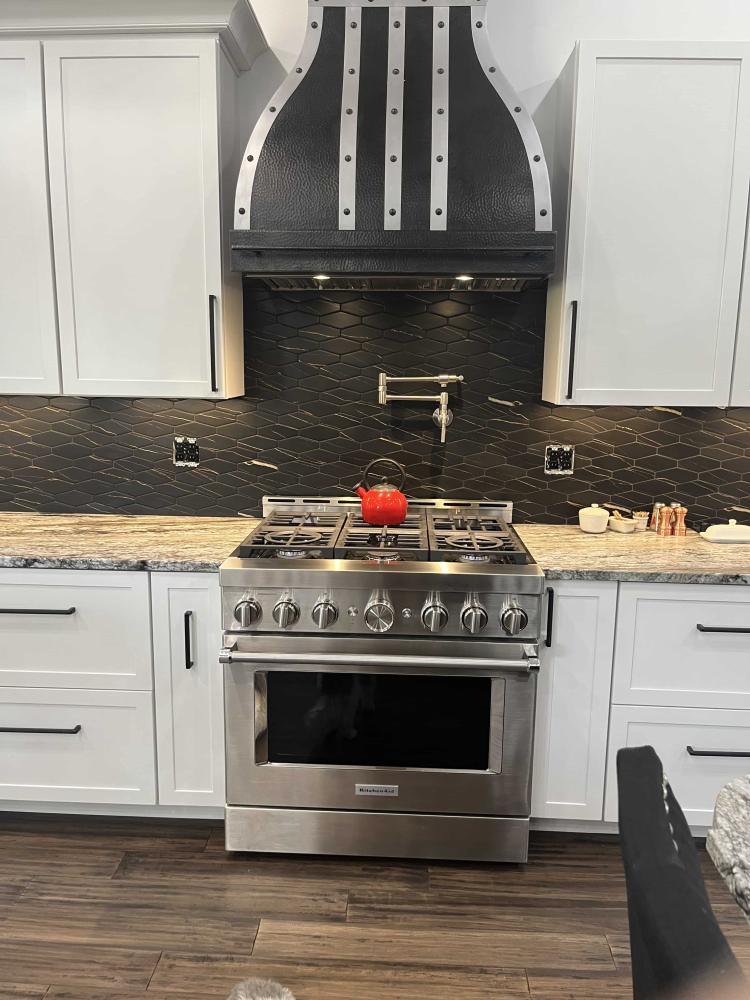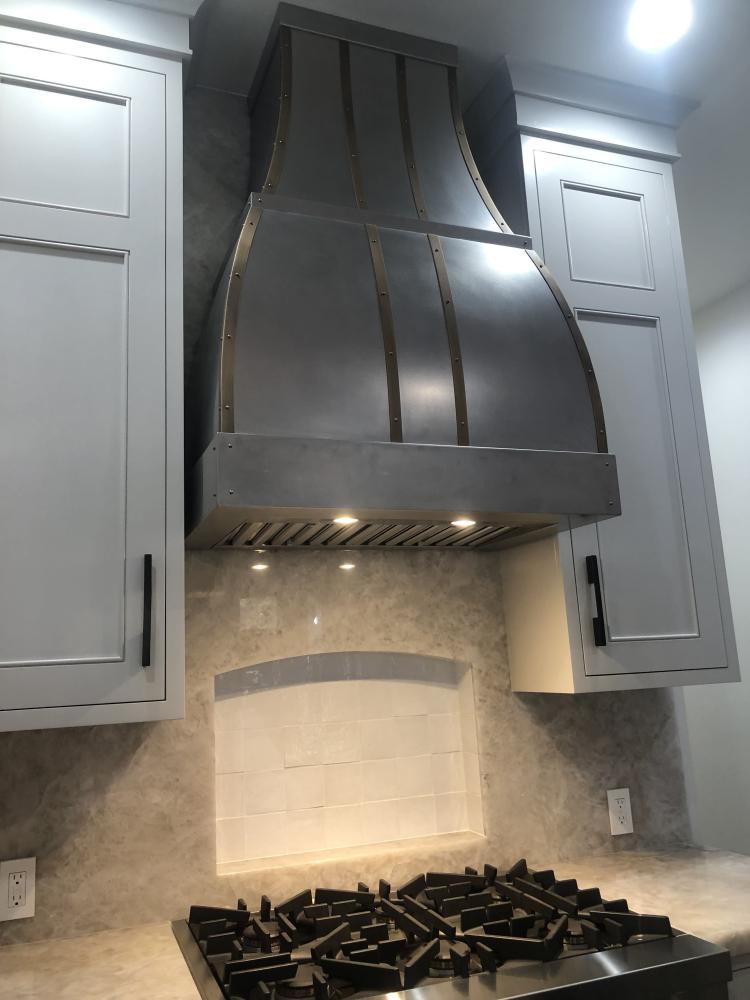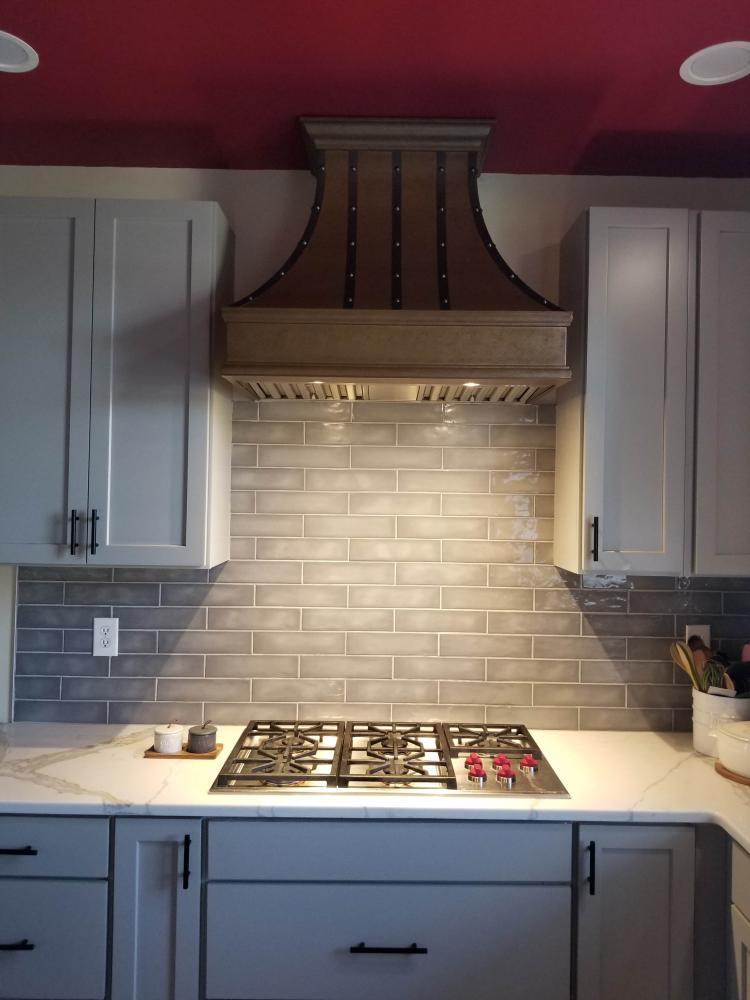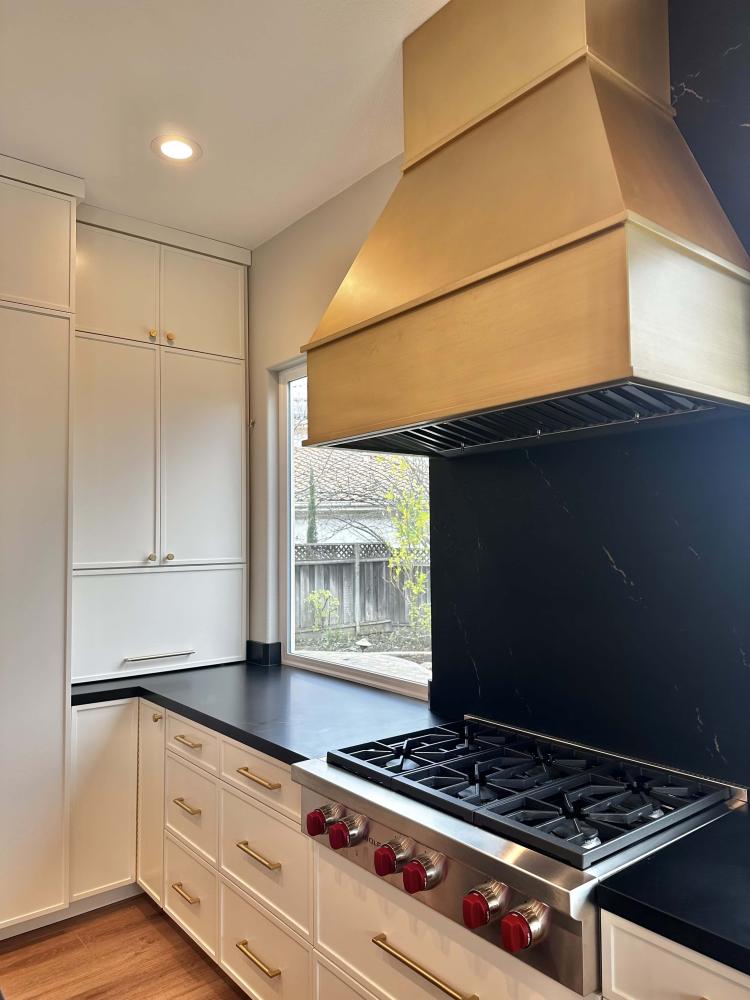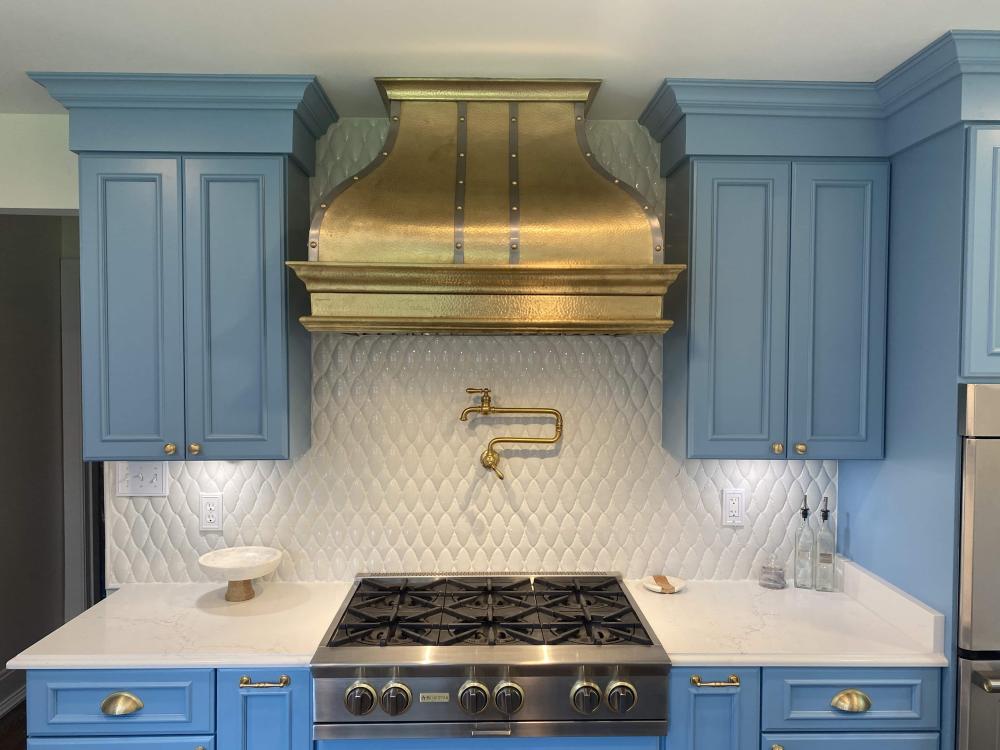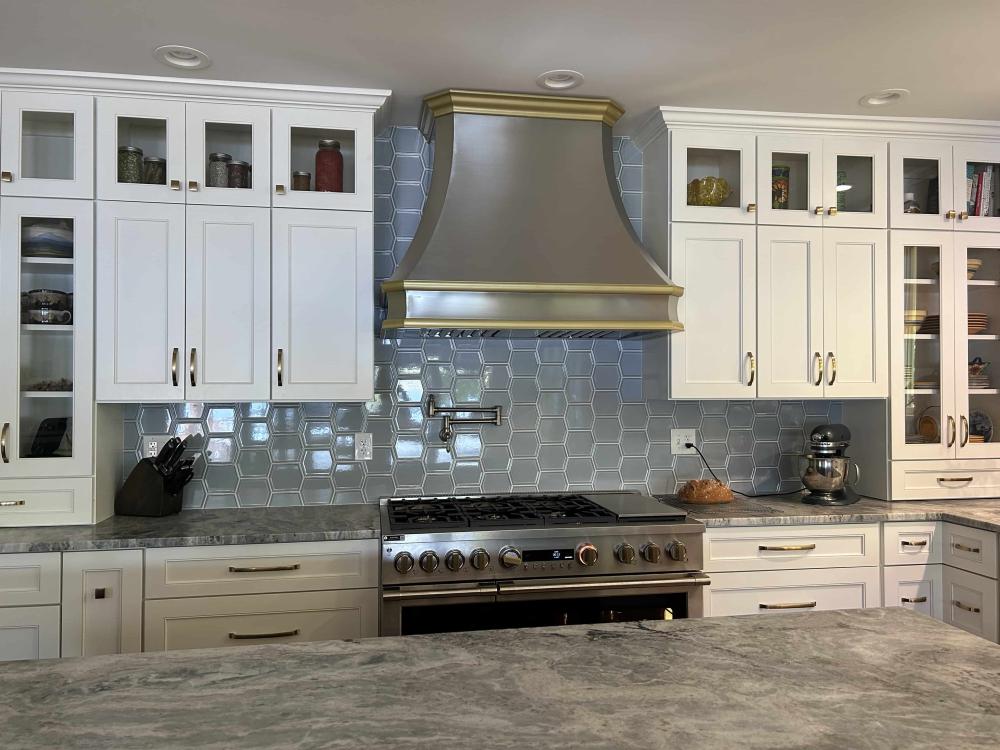You’ll need a range hood to keep your kitchen’s air well-ventilated and free from odors, smoke, and the other side effects of cooking. However, while the advantages of a good range hood are clear, it’s not as if they’re perfect.
For one thing, they can be loud. How bothersome this is will depend on your own personal taste. Some people don’t mind the hum of their range hood, while for other people it can deeply impact their sense of peace. In any case, no one wants to have a range hood that’s overly loud.
Nor do they need to. While there’s no such thing as a silent range hood, you can get a quiet range hood. Even if you already have a range hood installed, there are ways to reduce the noise levels. In this post, we’re going to run through everything you need to know about having a quiet kitchen exhaust fan on your property. We’ll take a look at what influences the loudness of a range hood, some handy tips if you’re in the market for a quiet vent hood, and how you can make your current range hood quieter.
What Influences the Loudness of a Range Hood?
As you might expect, not all range hoods create equal amounts of noise. Some are louder than others. Having an understanding of the influential factors that determine the range hood’s sound levels can go a long way towards helping you to keep noise at a minimum. So what are the key components? Let’s take a look.
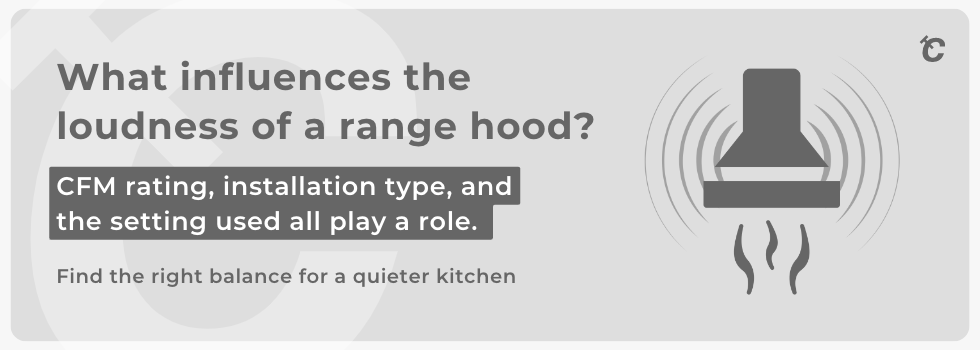
CFM
You might be drawn to the aesthetics of a range hood — after all, they can be pretty beautiful — but from a functional perspective, the most important aspect is the CFM rating of the range hood. CFM stands for cubic foot per minute, and essentially refers to the size of the space that the range hood can ventilate. The higher the CFM, the greater the amount of space it can handle.
A high CFM is handy from a ventilation perspective, but it can be problematic from a noise perspective. A range hood with a high CFM will do its job extremely well, but will likely generate a lot of noise. As such, it’s important to find the adequate level of power that your kitchen needs. It can be tempting to go for the most powerful option available to you, but you’ll have to deal with added noise for no benefit. This post can help you to determine how many CFMs you need.
The Installation Process
There’s more than one way to add a range hood to a kitchen. Some are noisier than others. There are three common types of range hood installations — wall mounted, under cabinet, and island installation. If you’ve been looking for the answer to the question, ‘what is the quietest range hood?’ then you’ll likely find that an under cabinet installation is the quietest. However, there are two things to be said about this. The first is that it’ll still generate some noise; the quietest under cabinet range hood is unlikely to be disruptive, but it won’t be silent! The second is that they usually produce less noise for a pretty clear reason: they’re less powerful. You tend to lose some effectiveness when you focus too much on noise.
The Setting You’re Using
The same range hood can produce different volumes of noise depending on the setting you’re using. The vast majority of range hoods come with multiple settings, typically ‘low,’ ‘medium,’ and ‘high.’ Those settings also correspond to the amount of noise that they make. There can be a big difference between the volume of the lowest and highest setting.
Pre-Buying Vent Hood Tips
There are ways to make your existing range hood quieter, as we’ll see below. But in general, it’s easier to get a quieter range hood when you’re installing a new one at your property, rather than trying to modify an existing ventilation fan. If you’re looking to add a new vent hood to your kitchen as part of your remodeling project, then take the following tips on board. They’ll all help to keep the noise to a minimum.
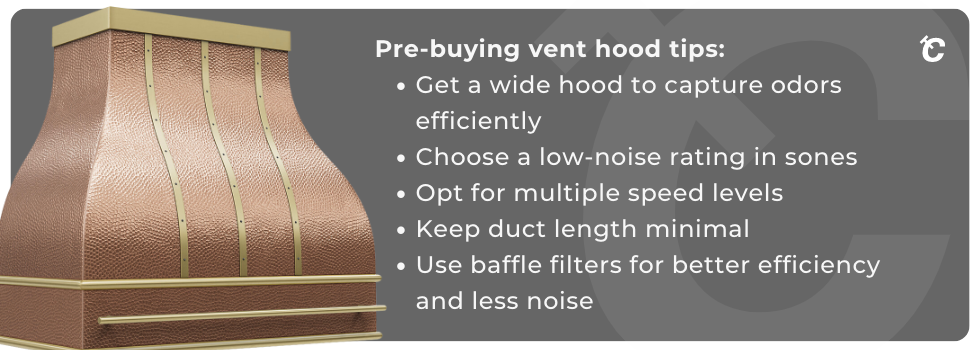
Buy a Wide Range Hood
Not too wide, since that’ll produce more power than is necessary, but at least wider than the width of your stovetop. This approach works because it makes it easier for the vent fan to pick up the odors and smoke that is directly below it, rather than out to the sides. If the vent is thinner than the stove top, then it’ll need to work harder and for longer to do its job. You’d much rather live with a minute of noise rather than ten minutes!
Pick a Range Hood with A Low Noise Rating
Don’t wait until your range hood is installed until you figure out how much noise it’s going to make. You can usually have a pretty clear idea of how loud it’s going to be before you go through the installation process, and it’s all thanks to the noise level rating that’s assigned to the range hood.
These assessments are given in sones. The higher the number of sones, the louder the fan will be. You can expect a quiet range hood to be in the 6 - 7 sones range, which equals 65 decibels. That doesn’t necessarily mean that you should automatically avoid installing a range hood with a higher sones rating, however. In some instances, the higher rating will be merited due to the increased level of power. It’s also important to keep in mind that the sones rating refers to the maximum volume of the range hood; that is, when it’s on the highest setting, which it won’t always need to be at.
Multiple Speed Levels
If there’s one thing that’ll help you to manage the sound levels in your kitchen effectively, it’s a range hood that has multiple speed levels. A range hood with only one setting would be highly problematic since you’ll always need to have the vent running at its most powerful. There’d be no other option. If it has multiple speed levels, you’ll be able to run the fan at its most powerful level during peak moments before turning it down to a low level once you’ve finished.
All good range hoods come with multiple speed settings as standard, so whichever one you’re looking to buy, the chances are that it already comes with low, medium, and high settings — and maybe even more.
Keep Duct Length to a Minimum
The duct run of the range hood will have a big impact on the overall efficiency of your range hood, as well as, by extension, the amount of noise that the fan produces. It’s nearly always best to keep your duct run as simple as possible. This process involves using ducts that are straight (try to avoid bends/L shapes), using as short a duct as possible, and adding more width. You can also seal the duct joints with a sealant to prevent air leakages.
Add the Right Filter
You’ll have a choice of filters you can use with your range hood. The two most common filter types are biffle filters and mesh filters. While both perform reasonably well, from a sound perspective, there’s only one winner, and that’s biffle filters.
Biffle filters are slightly more expensive than mesh filters, but they’re worth the money. You won’t have to clean them as regularly as mesh filters, and they’re more powerful, too. They also work more efficiently, which helps to minimize the amount of noise from the range hood.
How to Make Your Range Hood Quieter
The tips that we’ve outlined above are useful if you’re installing a new range hood in your kitchen. But what if you already have a range hood? If you’re not happy with how much noise your machine is making, then fear not — there are some things you can try to help to quieten things down.
Use the Lowest Speed
This sounds like a simple solution, and it is — if you have multiple speed settings on your range hood, then try using the lowest setting. This will be noticeably quieter than the loudest setting. Most people go straight for the highest setting, but if you’ve invested in a good range hood, then the lowest setting will still be powerful. It’s just that it might take slightly more time to clear the room of odors, but not much more.
Invest in Maintenance
You’ll need to invest in some maintenance to keep your range hood working efficiently. With so many other tasks needing work in the home, this is easy to overlook, but there’s a lot of value in committing some time towards ensuring that your range hood is in tip-top condition. The most basic maintenance tip is to clear the filters — your range hood won’t work as effectively if your filter is blocked up with grease and dirt, which means you’ll need to consistently use the higher settings to get the same results as you would normally get with the lower settings.
Tighten Up Loose Screws
Not all range hood noise comes from the fan. Sometimes it comes from the machine itself. If you hear a rattling noise, then it’s likely that there’s a loose screw somewhere. Tightening up these screws can help to get rid of the annoying sound.
Getting the Range Hood That’s Right For You
The number one cause of an overly loud range hood is making the first wrong purchase decision in the first place. Range hoods come in a wide variety of styles and sizes; if yours isn’t right for your property, then it’ll be likely that it’s too loud (or equally, it could be too quiet because it’s too small to work effectively; but the former reason is more likely than this one). To ensure you get the right range hood for your kitchen, keep the following considerations in mind.
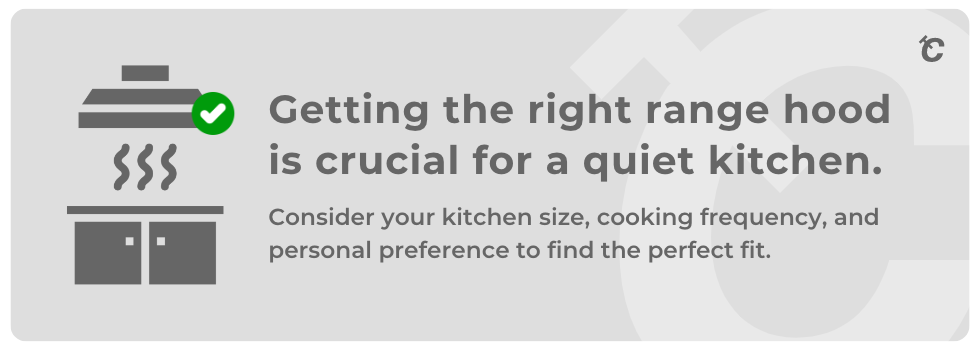
Kitchen Size
The range hood is there to ventilate the air in the kitchen. If you’ve only got a small kitchen, then you won’t need an overly powerful range hood. It can be tempting to buy the best of the best, but remember that when it comes to range hoods, there is no ‘best of the best’ — there’s only the fan that’s right for the space. Having a clear understanding of how many CFMs you need for the space is key.
How Frequently You Cook
Also, think of your cooking style. If you make quick and easy meals a couple of times a week, then you won’t need an all-powerful range hood, even if it’s a small space. On the other hand, if you’re spending long days in the kitchen cooking up a storm, then you’ll need a fan that can handle all those odors you’ll be pumping into the air.
Personal Preference
Finally, remember that personal preference is important too. If you’re someone who’s largely unbothered by the sound of fans, then it can be less of a priority than if you find the noise seriously disruptive.
Get Your Range Hood From World CopperSmith
While getting a quiet stove exhaust fan is important, the noise that the range hood generates should not be the only consideration. You’ll also want your range hood to be functional and add to the overall aesthetics of your kitchen. You’ll need to have a range hood in your cooking space, so you may as well ensure that it’s stylish! At World CopperSmith, we specialize in making stunning range hoods that’ll have pride of place in your kitchen for as long as you live there. Offering endless customization options and outstanding customer service, we’ve built a reputation for being the leading manufacturer of bespoke range hoods in the United States.
To get started, simply visit our range hoods product page. Once you’ve found your preferred style, work your way through the customization options we provide, and we’ll send you a 3D configuration and quote within 24 hours. If you have any questions about our range hoods or any of our other products, don’t hesitate to contact us.

